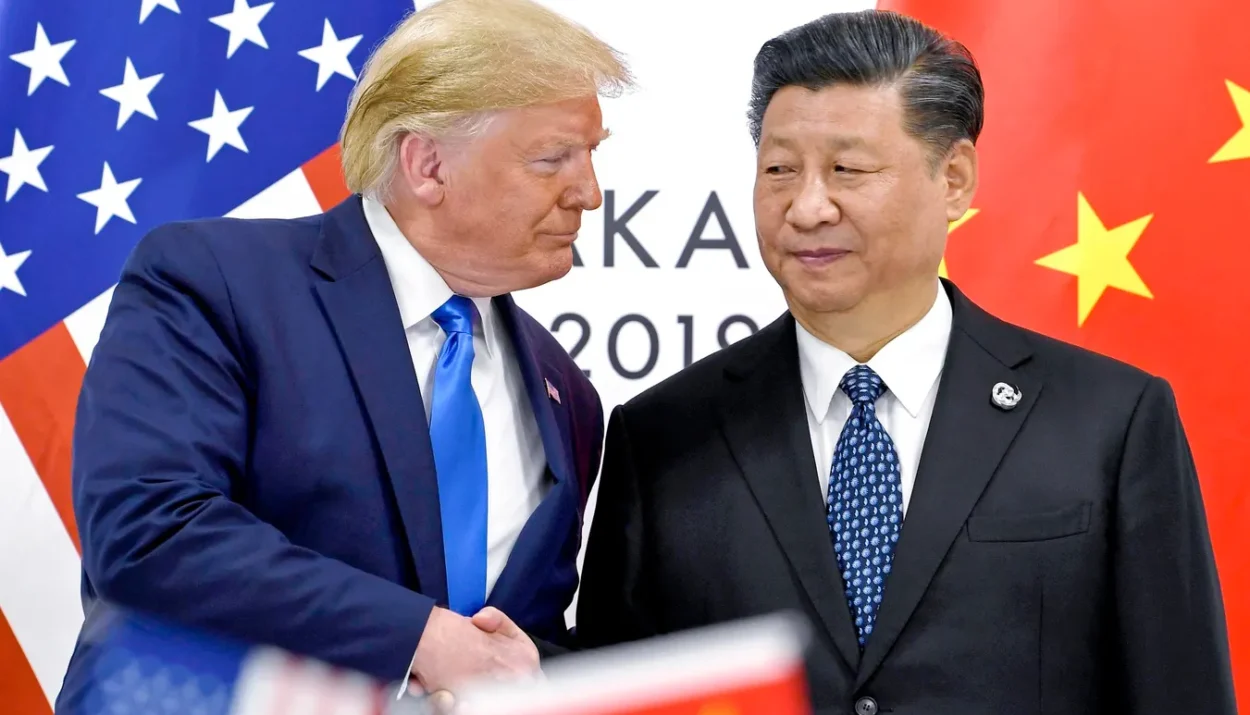Amid price warnings from Walmart and conflicting comments from the Treasury, Press Secretary Karoline Leavitt insists China will eat the cost of tariffs — not American families.
In a heated exchange during Monday’s press briefing, White House Press Secretary Karoline Leavitt doubled down on the Trump administration’s position that China — not U.S. consumers — will shoulder the economic burden of the newly reimposed tariffs on Chinese exports.
Her remarks came after Walmart’s CEO warned last week that the retailer would be raising prices “given the magnitude of the tariffs” — igniting a response from President Trump, who posted on Truth Social over the weekend accusing Walmart of passing the blame.
Leavitt: "The reality is, as the president has always maintained, the Chinese producers will be absorbing the cost of these tariffs." pic.twitter.com/ellw0XQp8v
— Aaron Rupar (@atrupar) May 19, 2025
Trump: “Walmart Should EAT THE TARIFFS”
President Trump fired back after Walmart’s earnings call:
“Walmart should STOP trying to blame Tariffs as the reason for raising prices throughout the chain. Between Walmart and China they should, as is said, ‘EAT THE TARIFFS’ and not charge valued customers ANYTHING. I’ll be watching — and so will your customers!!!”
Trump’s comments appear to clash with recent remarks by Treasury Secretary Scott Bessent, who acknowledged the burden of tariffs “may get passed to consumers.”
But the White House pushed back hard on that narrative.
Leavitt: “They Need Our Markets. They Need Our Consumers.”
Pressed by reporters on whether Trump’s statements acknowledged U.S. households may face higher prices, Leavitt defended the administration’s stance:
“First of all, the CEO of Walmart made those comments about the tariffs on an earnings call where CEOs, I believe, are legally obligated to give the most dire warnings and forecasts to their investors and stakeholders.”
“The reality is, as the president has always maintained, Chinese producers will be absorbing the costs of these tariffs. That is why China was so quick to hustle to the negotiating table with the United States of America.”
The Backdrop: Rising Prices, Rising Tensions
- Walmart is the largest retailer in the U.S. and a key importer of goods from China.
- With tariffs affecting hundreds of billions in imports, Walmart said it’s facing higher costs that will impact pricing.
- Economists generally agree that tariffs are often passed down the supply chain, with consumers bearing some of the cost through higher prices — especially for everyday goods like clothing, electronics, and kitchenware.
What’s Next?
While the White House remains publicly firm that tariffs are hurting China more than the U.S., the debate over who actually “eats” the cost is far from settled.
Markets, retailers, and voters alike will be watching — just as Trump promised.
Disclosure: This article does not represent investment advice. The content and materials featured on this page are for educational purposes only.
Related:
Bostic Warns on Moody’s Downgrade, Inflation Risk — Leans Toward One Cut
Nvidia Expands in China & Taiwan as US Export Rules Tighten
Earnings Calendar, Fed Speech, Housing Data: What to Watch This Week
UK overtakes China as second-largest US Treasury holder
CERN Scientists Turn Lead into Gold — Why This Is Bigger Deal for Bitcoin Than You Think
Nvidia, Cisco, Oracle and OpenAI are backing the UAE Stargate data center project
Trump vs. Tim Cook: Apple’s Global Strategy Sparks Debate Over Economic Patriotism and AI Security
US and EU break impasse to enable tariff talks
China Tightens Control Over AI Data Centers
Trump: US will set new tariff rates, bypassing trade negotiations










